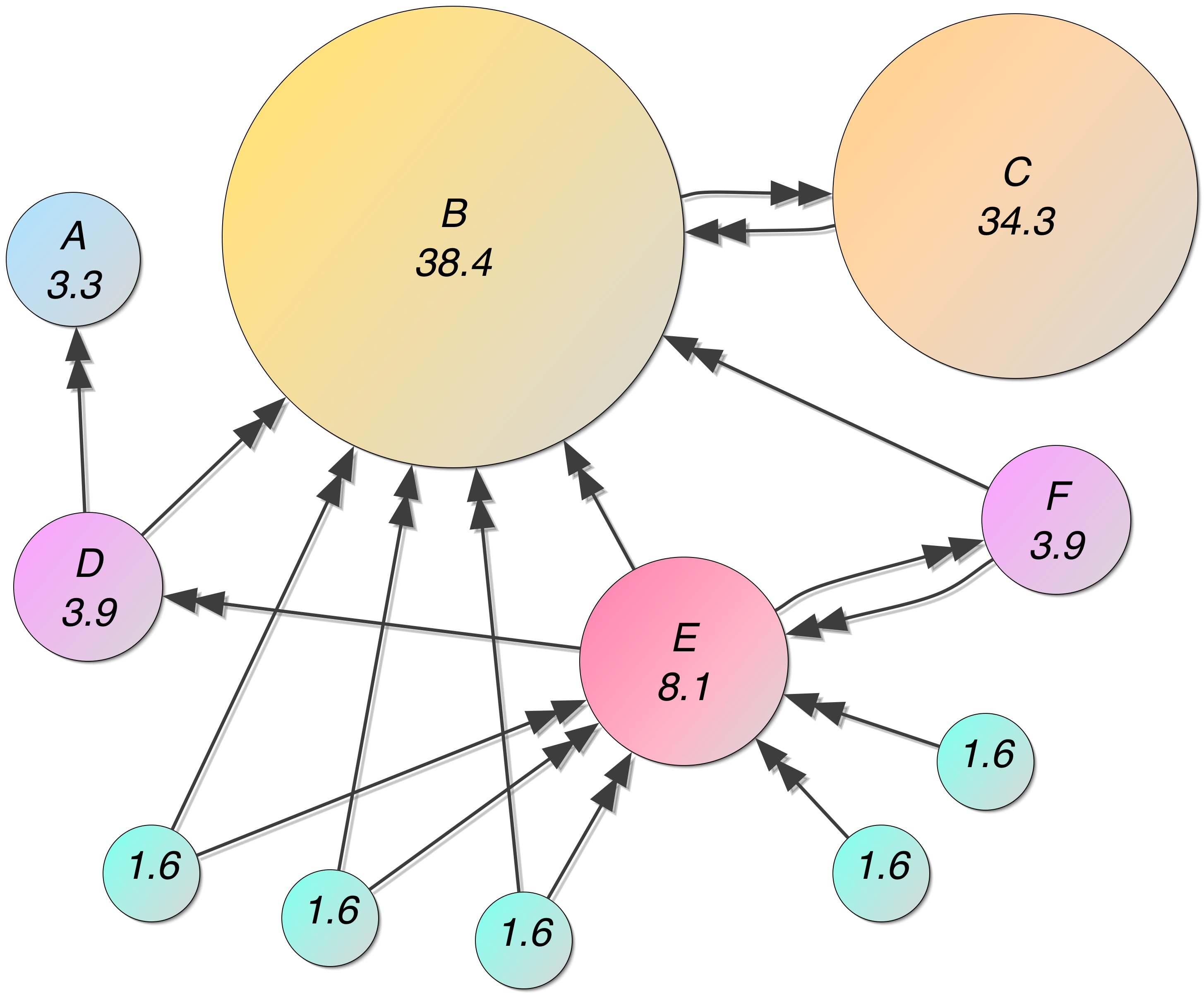Ranking highly in Google search results is a dream for every website owner and digital marketer. It not only increases visibility but also drives more traffic and potential customers to your site. However, achieving a high rank requires a strategic approach, consistent effort, and adherence to Google's guidelines.
Search engine optimization (SEO) plays a crucial role in determining your website's rank in Google search. By understanding how Google ranks websites, you can tailor your content and technical strategies to align with its algorithms. This article will guide you through the essential steps to improve your website's ranking.
Whether you're a beginner or an experienced marketer, mastering the art of Google search ranking can significantly enhance your online presence. Let's dive into the details and uncover the secrets to achieving top positions in Google search results.
Read also:Decoding The High Fashion Lyrics Meaning A Deep Dive Into Its Essence
Table of Contents
- Understanding Google Search Rankings
- The Importance of Ranking in Google Search
- Key SEO Factors for Google Search Rankings
- On-Page SEO Techniques
- Off-Page SEO Techniques
- Technical SEO for Better Rankings
- Creating High-Quality Content for Google Search
- Optimizing for Mobile Devices
- Local SEO Strategies
- Conclusion and Call to Action
Understanding Google Search Rankings
Google search rankings refer to the position of your website in the search engine results pages (SERPs) when users search for specific keywords or phrases. These rankings are determined by a complex algorithm that considers hundreds of factors, including relevance, authority, and user experience.
To achieve a high rank in Google search, your website must meet the criteria set by Google's algorithms. This includes optimizing your site for both users and search engines, ensuring that your content is valuable, and building a strong online presence.
How Google Determines Search Rankings
Google uses a combination of factors to determine the rank of websites in its search results. These factors include:
- Content quality and relevance
- Backlinks from authoritative websites
- User engagement metrics such as bounce rate and time on site
- Technical SEO elements like site speed and mobile-friendliness
Understanding these factors is the first step toward improving your website's rank in Google search.
The Importance of Ranking in Google Search
Ranking highly in Google search results is crucial for the success of any website. Higher rankings lead to increased visibility, which translates to more traffic and potential customers. Studies show that the top three search results receive the majority of clicks, making it essential to aim for these positions.
Additionally, a high rank in Google search enhances your website's credibility and trustworthiness. Users tend to trust websites that appear on the first page of search results, assuming they are more reliable and authoritative.
Read also:Who Is Joan Marjorie Drane Discover Her Inspiring Journey
Impact of Google Search Rankings on Business Growth
For businesses, ranking well in Google search can significantly impact growth. It drives organic traffic, reduces the need for paid advertising, and increases conversion rates. By optimizing your website for Google search, you can attract more visitors who are genuinely interested in your products or services.
Key SEO Factors for Google Search Rankings
SEO is the foundation of achieving a high rank in Google search. Several key factors influence how well your website performs in search results. These factors can be categorized into on-page, off-page, and technical SEO elements.
On-Page SEO Factors
- Keyword optimization
- Meta tags and descriptions
- Header tags (H1, H2, etc.)
- Internal linking structure
Off-Page SEO Factors
- Backlinks from authoritative websites
- Social media presence
- User-generated content
Technical SEO Factors
- Site speed and performance
- Mobile-friendliness
- Secure connections (HTTPS)
On-Page SEO Techniques
On-page SEO involves optimizing individual web pages to rank higher in Google search results. This includes using relevant keywords, creating compelling meta descriptions, and structuring content effectively.
Keyword Optimization
Selecting the right keywords is vital for on-page SEO. Use tools like Google Keyword Planner to identify high-volume, low-competition keywords related to your niche. Incorporate these keywords naturally into your content, ensuring they align with user intent.
Meta Tags and Descriptions
Meta tags and descriptions provide search engines with information about your page's content. Craft compelling meta descriptions that include your target keywords and encourage users to click through to your site.
Off-Page SEO Techniques
Off-page SEO focuses on building authority and trust through external signals. Backlinks from reputable websites are the most important off-page factor, as they signal to Google that your content is valuable and trustworthy.
Building Quality Backlinks
Focus on acquiring backlinks from authoritative websites in your industry. Guest blogging, creating shareable content, and collaborating with influencers are effective strategies for building high-quality backlinks.
Leveraging Social Media
While social signals are not direct ranking factors, they can indirectly influence your website's rank by increasing visibility and driving traffic. Engage with your audience on social media platforms and encourage them to share your content.
Technical SEO for Better Rankings
Technical SEO ensures that your website is optimized for both users and search engines. This includes improving site speed, ensuring mobile-friendliness, and using secure connections.
Improving Site Speed
Site speed is a critical factor in Google search rankings. Optimize your website's performance by compressing images, leveraging browser caching, and minimizing HTTP requests. Faster loading times improve user experience and reduce bounce rates.
Ensuring Mobile-Friendliness
With the majority of users accessing the internet via mobile devices, having a mobile-friendly website is essential. Use responsive design to ensure your site looks great and functions well on all devices.
Creating High-Quality Content for Google Search
Content is king in the world of SEO. To rank well in Google search, your content must be informative, engaging, and valuable to your target audience. Focus on creating content that answers users' questions and addresses their pain points.
Tips for Creating High-Quality Content
- Conduct thorough research to understand your audience's needs
- Use a mix of formats, such as articles, videos, and infographics
- Optimize content for readability and accessibility
Content Marketing Strategies
Develop a content marketing strategy that aligns with your SEO goals. Regularly publish new content, repurpose existing content, and promote it through various channels to maximize its reach and impact.
Optimizing for Mobile Devices
Mobile optimization is a key factor in Google search rankings. With the introduction of mobile-first indexing, Google prioritizes mobile-friendly websites in its search results. Ensure your site is optimized for mobile users to improve your rank and user experience.
Mobile-First Indexing
Mobile-first indexing means that Google primarily uses the mobile version of your site's content to index and rank your pages. Make sure your mobile site is fully functional and provides a seamless user experience.
Responsive Design
Implement responsive design to ensure your website adapts to different screen sizes and resolutions. This improves usability and reduces bounce rates, contributing to better rankings in Google search.
Local SEO Strategies
For businesses targeting local audiences, local SEO is crucial for improving Google search rankings. Optimize your website for local search by claiming your Google My Business listing, using location-specific keywords, and encouraging customer reviews.
Google My Business Optimization
Claim and optimize your Google My Business listing to enhance your visibility in local search results. Include accurate and up-to-date information about your business, such as address, phone number, and business hours.
Location-Based Keywords
Incorporate location-based keywords into your content to target users searching for services or products in your area. This increases the likelihood of your website appearing in local search results and attracting relevant traffic.
Conclusion and Call to Action
In conclusion, achieving a high rank in Google search requires a comprehensive approach that combines on-page, off-page, and technical SEO strategies. By understanding how Google determines search rankings and implementing best practices, you can improve your website's visibility and attract more visitors.
We encourage you to take action by implementing the strategies outlined in this article. Start by analyzing your current SEO performance, identifying areas for improvement, and developing a plan to enhance your website's rank in Google search. Don't forget to share your thoughts and experiences in the comments below, and explore our other articles for more tips and insights.
Sources:

